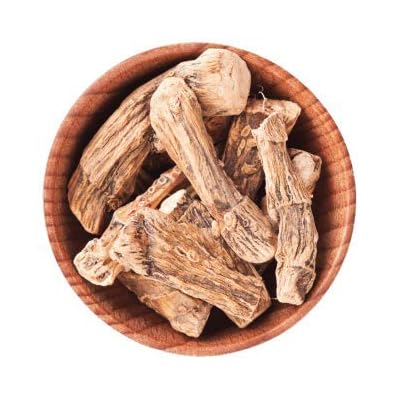Packaging: 50g (or 500g & 1kg) containing Acorus - Calamus.
(The price includes VAT.)
Other Names: -
In ancient times, as mentioned by Theophrastus, Dioscorides, and Pliny, this reed was used in the preparation of "acorus wine," known in history for its tonic and invigorating properties.
Acorus calamus is a tall perennial plant originating from India, but today it can be found in many regions around the world, including throughout Europe, Asia, and Australia. A characteristic feature of Calamus is the pleasant aroma (resembling mandarin) of its leaves and root. This quality has led to its use in the perfume industry, making it a significant plant in international trade for thousands of years.
Yogis and philosophers of Ayurveda recommend Calamus for enhancing brain function, memory power, mental ability, and proper circulation in the brain.
As an herb, Calamus has been used for many different purposes. In ancient Egypt, the root of the plant was used as an aphrodisiac, while the Dakota Indians used it to combat the fear of battle. In Ayurveda, it is an important herb recommended for addressing the consequences of excessive alcohol consumption, as it is believed to support liver function.
In modern herbal medicine, Calamus is mainly used for addressing stomach disorders. Its intake stimulates salivary glands and the production of gastric fluids, helping to alleviate issues such as dyspepsia, gastritis, bloating, heartburn, and aerophagia. It is also thought to combat intestinal parasites and has diuretic properties.
From ancient times to the present, it has been used in all medical systems, including Ayurveda, Sidha, and Unani, especially in India.
As a remedy, it has been utilized since the time of Hippocrates. Calamus has numerous benefits, including clearing nasal congestion, improving memory, treating asthma, enhancing voice clarity, and providing care for skin and hair.
Acorus has been recognized in the pharmacopoeias of Austria, Germany, the Netherlands, Italy, Norway, Russia, Sweden, and Switzerland.
Properties:
- Helps with rheumatism and arthritis. Aids in oliguria and reduces uric acid levels. Addresses bloating, dyspepsia, and gastritis. Also used for intestinal parasites and is significant for benign prostatic hyperplasia.
- The root is the best antidote for the adverse effects of marijuana. It can neutralize the side effects of all psychedelics when using the root of Calamus.
- Effective for cough and fever. Combined with licorice root decoction, it has positive effects on cough, fever, and colic in children. For dry cough, chewing the root provides relief for sore throats. In short, Calamus clears the respiratory passages and removes obstructions, restoring normal respiratory function.
- Memory enhancement. Used to boost memory.
- Asthma. Effective against asthma and chronic bronchitis. The herb acts as a bronchodilator and decongestant in the chest, clearing passages by eliminating impurities from the stomach and lungs, providing comfort to patients.
- Voice clarity. When mixed with Calamus, it helps remove sluggishness from the tongue during speech. Since it enhances speech, it is very useful for salespeople, executives, teachers, researchers, intellectuals, and others. It is also good for those preparing for interviews, exams, and lectures.
- Calming effect. The neuropharmacological actions of asarone reveal its calming and sedative effects.
- Vasodilator. It dilates blood vessels in the brain, increasing blood circulation, thus being useful in coma, cerebrovascular diseases, cerebral accidents, and transient ischemic attacks.
- Skin care. The extract of Calamus is used for skin baths, providing moisturizing effects.
- Hair care. Calamus extract is one of the main ingredients in formulations for hair care. To prevent hair loss, mix a teaspoon of powdered root with two teaspoons of cold coconut milk to create a paste. Apply to the affected area and leave it on for half an hour before rinsing.
- Stimulates liver and bile function and acts against dyspepsia, gastritis, and digestive ulcers while combating exhaustion and weakness due to digestive issues.
- It is a mild sedative and appetizing herb, contributing to headache relief.
- It appears to be effective for chronic bronchitis, cough, and bronchial asthma, and it assists in smoking cessation.
- Particularly effective for intestinal colic caused by bloating, acting as an antifoaming agent to prevent and relieve bloating and stopping gas, heartburn, aerophagia, and sourness.
Active Ingredients: Tannins, asarone, malic acid, sodium silicate, acorin, calamine, choline, methylamine.
Contraindications:
It may reduce the action of antacid medications. Excessive doses can cause vomiting and stomach disorders. If you suffer from hypotension or are undergoing treatment for depression or insomnia, consult your doctor. Additionally, if you are taking antacids for the stomach, this herb could slightly diminish their effectiveness.
Traditional uses also include: amnesia, cardiac arrhythmias, insomnia, tinnitus, chronic bronchitis, and bronchial asthma.
Origin: India
Storage: Keep in a cool, dark place (5°C – 15°C)
Preparation:
1 teaspoon of powdered Acorus root (or a small pinch of uncrushed) is added to a container with 1 cup of water, boiled for 5 – 10 minutes, then strained and consumed.





